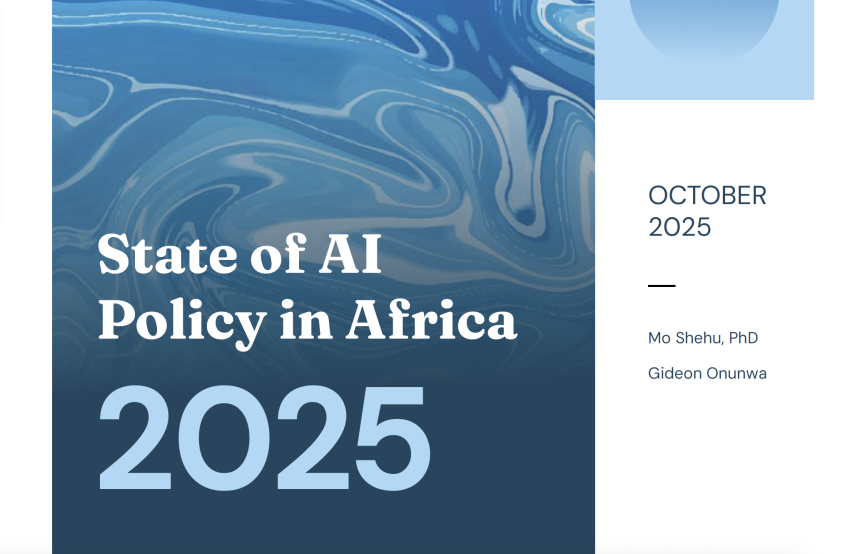Africa’s AI ambitions are soaring — but implementation is still catching up, according to the new State of AI Policy in Africa 2025 report, which reviewed AI strategies in 20 countries.
The report was produced by Column Content Limited and was mainly authored by Mo Shehu, CEO of Column Content.
Why it matters
As artificial intelligence reshapes the global economy, African nations are racing to ensure they don’t get left behind. The report finds most have strong visions on paper, but few are backing them with laws, budgets, or accountability.
The big picture
Over half of the reviewed countries — including Ghana, Nigeria, Kenya, and Senegal — have national AI strategies. Yet only a handful, like Egypt and Ethiopia, have moved from planning to tangible results.
By the numbers:
- 35 countries in Africa have data protection laws, but fewer than 10 have any AI-specific regulation.
- Kenya leads in funding, with a $1.1 billion AI budget.
- Ethiopia and Egypt scored highest overall (20/24), driven by institutional backing and visible pilot projects.
- Ghana, South Africa, and Mauritius follow close behind, but lack enforcement and monitoring.
Key findings:
- Weak funding: Most countries rely on donor support or general ICT budgets that can be easily diverted.
- No monitoring: Few have clear metrics or reporting systems.
- Ethics ≠ accountability: “Responsible AI” is widely mentioned but rarely codified in law.
- Transparency gap: Many policies aren’t even publicly available or regularly updated.
Zoom in
- Ethiopia stands out for direct government funding and AI use in courts and health.
- Egypt is pushing AI in government services and education, backed by big data center investments.
- Kenya is spending big but still lacks legal muscle.
- Ghana shows active adoption in health and agriculture, but no binding AI law yet.
Between the lines
The report describes “ambition without backbone” — countries are drafting strategies faster than they can fund or enforce them.
The bottom line
Africa isn’t late to the AI revolution — just early in execution. The next challenge is making ambition durable: embedding AI strategies into law, creating funding pipelines, and holding governments accountable.
Read the full report below:










